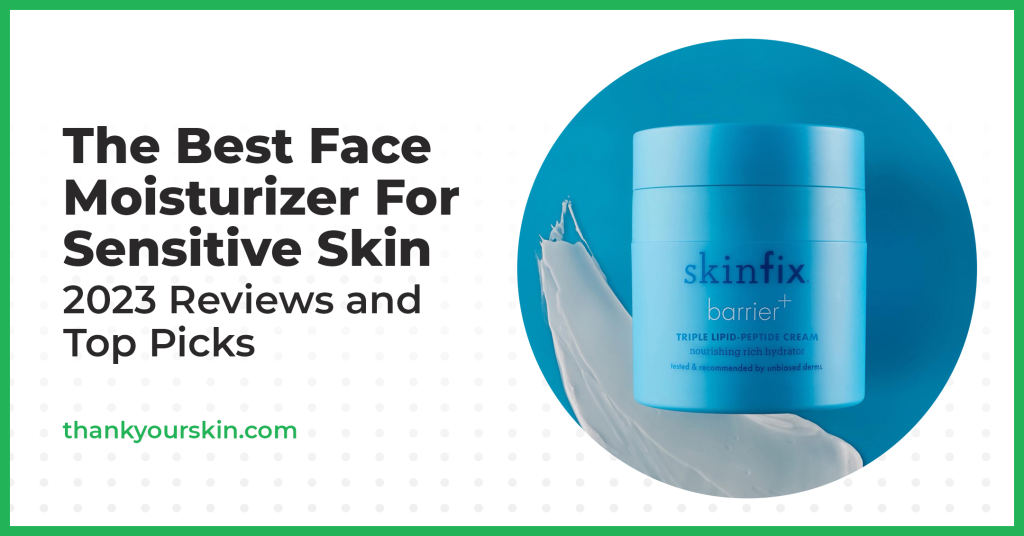
What Is Sensitive Skin?
Itchy skin? Red patches? Stinging sensation?
If these things commonly happen with your skin, then, yes, that’s sensitive skin. And it can happen for a lot of reasons.
For one, it can be due to a skin condition. Eczema, rosacea and contact dermatitis are common culprits.
Excessive exposure to the sun, wind or extreme temperature can lead to sensitivity reactions, too. And so does being exposed to harsh chemicals.
Because of how delicate your skin is, you need to be careful in taking care of it. Pay close attention to what it needs and what you are giving it.
Take, for example, moisturizers.
Moisturizers are essential for any skin type. Unfortunately, however, not all moisturizers are formulated the same way.
Some contain alcohol while others are loaded with synthetic fragrances and ingredients.
So, while you are thinking you’re doing a great job in taking care of your skin, you’re actually making things worse for your sensitive skin.
How Do You Moisturize Sensitive Skin?
In keeping your skin moisturized, there are a lot of things you need to consider. And by a lot, I mean a lot.
Reconsider your bathing routine
The first thing you need to consider is your bathing routine. If you are taking a bath too often, there’s a good chance you’re doing harm to your skin.
You see, frequent baths can strip the skin off of its natural oils. And without these oils, your skin becomes vulnerable to damage and stress.
For the winter months, it’s ideal that you take a bath twice or thrice a week. One good reason is the water you are using.
During the cold months, your tendency is to use hot water for your bath. And because it feels good, you are likely to extend your bath time.
This can spell bad news for your sensitive skin.
Similar to showering too frequently, using hot water for your showering can also strip your skin’s natural protection. It can also draw out water from your skin.
Choose the right soap
Next is your soap.
If you are using common household soap, stop. If you are using a deodorant soap, stop.
The same goes for soaps that contain heavy fragrances, artificial dyes and alcohol.
These ingredients can leave your sensitive skin dry and this won’t be good for you. Instead, find soaps that are formulated for your skin type.
They should be hypoallergenic and free from the ingredients I mentioned earlier. And if you can find one that’s dermatologist tested and clinically proven to be safe for sensitive skin, the better.
Keep in mind, however, that there are no strict criteria regulating hypoallergenic products. So, make it a habit to read your product’s’ ingredient list.
Here are some of the things you need to keep an eye out for:
There’s a list of the best soaps for sensitive skin you can check out here.
Moisturize
This one is pretty solid. If you want to moisturize your skin, use a moisturizer.
But, don’t use just any moisturizer.
There are two common ingredients you’ll find in most moisturizers: emollients and humectants.
Emollients include lipids and oils, like petrolatum, coconut oil and shea butter. They work by replacing the lipids in your skin cells.
Humectants, on the other hand, draws moisture from the air and keeps it in your skin. Glycerin and propylene glycol are two great examples.
Now, although they do sound promising, they don’t always work well with sensitive skin. Emollients, for example, are a bit occlusive and this can irritate your skin.
It can take a bit of a trial-and-error before you can find one that will work for you. You can do a sensitivity patch test first to see how your skin will react.
If you aren’t feeling confident doing it by yourself, you can always seek the help of your dermatologist.
Oh, and one more thing.
Your face is more sensitive and thinner than the rest of your body. So, if a lotion or cream works for your body, do not use it on your face right away.
Increase the humidity
If you work in a cold environment or you’re noticing your skin turning red and itchy when you’re blasting the AC, you can get a humidifier.
Humidifiers are inexpensive but they can help dramatically improve your skin. You can keep one in your office or in your room.
There are even humidifiers that can fit inside your car.
Conclusion
Sensitive skin is tricky to care for. Use the wrong ingredient or the wrong product and you can easily trigger a series of hypersensitivity reactions.
There’s redness, itching, inflammation and, at times, pain.
It is for that reason that we came up with the best face moisturizer for sensitive skin reviews.
Moisturizing is one good way to put a halt to those reactions. Apart from that, it can also slow down the signs of skin aging and improve your skin’s resistance against damage and stress.






